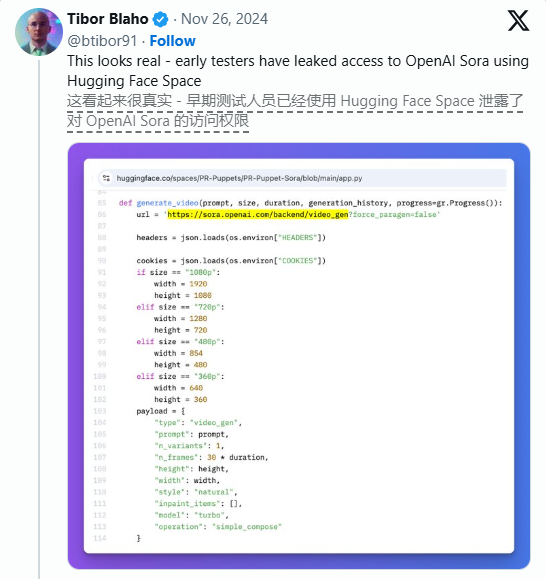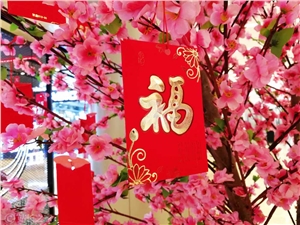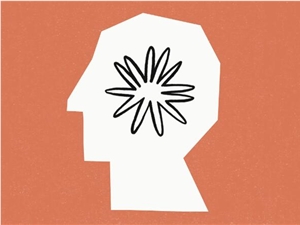Since OpenAI first previewed its text-to-video AI model Sora in February this year, there have been no specific updates. Recently, a group of test artists involved in the new text-to-video AI model Sora leaked early access to the model due to their dissatisfaction with the company.


They released a project related to the Sora API on the AI development platform Hugging Face, using early access authentication tokens to create a frontend interface that allows users to generate videos. Through this frontend, any user can input a short text description to generate videos up to 10 seconds long with a resolution of 1080p.
Subsequently, many users shared examples of the generated videos on social media, most of which contained OpenAI's visual watermark. However, after being open for about an hour, the frontend interface stopped working, leading to speculation that OpenAI and Hugging Face may have revoked access.
User-generated example: Prompt "teenage male playing basketball on his driveway in Florida. Sunny afternoon"
User-generated example: "0": "A close-up of a fluffy kitten with striking blue eyes sitting on a soft, cream-colored pillow. The kitten tilts its head slightly to one side, its ears perked up attentively. The background is a warm, softly-lit room with hints
These artists published an open letter on the public AI model platform Hugging Face, claiming they were exploited by the company during the testing process and became "unpaid R&D and PR tools."
In this open letter, the artists stated: "Dear corporate AI lords, when we gained access to test Sora, we were promised to be early testers and creative partners. However, we feel we were lured into a process of 'artistic whitewashing' to promote Sora." They emphasized that artists are not the company's "free bug testers, promotional tools, training data, or validation tokens."
The artists do not oppose using AI technology as a tool for artistic creation, but they expressed dissatisfaction with OpenAI's early access program, believing it exploits artists' creativity for unpaid labor.
They criticized OpenAI for providing them with only "artistic credibility" in the project without offering appropriate compensation. They particularly opposed OpenAI's content review requirements for Sora, stating that every piece of generated content needs approval from the OpenAI team before sharing.
When contacted by the media, OpenAI did not confirm the authenticity of the Sora leak but emphasized that artists participating in the "research preview" were doing so voluntarily and were not required to provide feedback or use the tool. An OpenAI spokesperson stated, "Sora is still in the research preview stage, and we are working to balance creativity with safety measures. The participation of hundreds of artists helps us prioritize new features and safeguards." Additionally, OpenAI promised to continue supporting participating artists through funding, events, and other means.
Earlier, OpenAI's former CTO Mira Murati stated that Sora is expected to be released by the end of the year, but they would not release any content that they are not confident in regarding the model's impact.
In a recent Reddit Q&A, Chief Product Officer Kevin Weil mentioned that the reason Sora has not been released is due to the need to expand its capabilities and ensure safety and prevent impersonation issues.
Key Points:
🌟 Artists protested against OpenAI's unpaid exploitation by leaking the Sora model.
🤖 They criticized OpenAI's early testing program, believing the company was using their creativity for promotion.
🔍 OpenAI responded that participation in testing is voluntary and committed to continuing support for artists.








